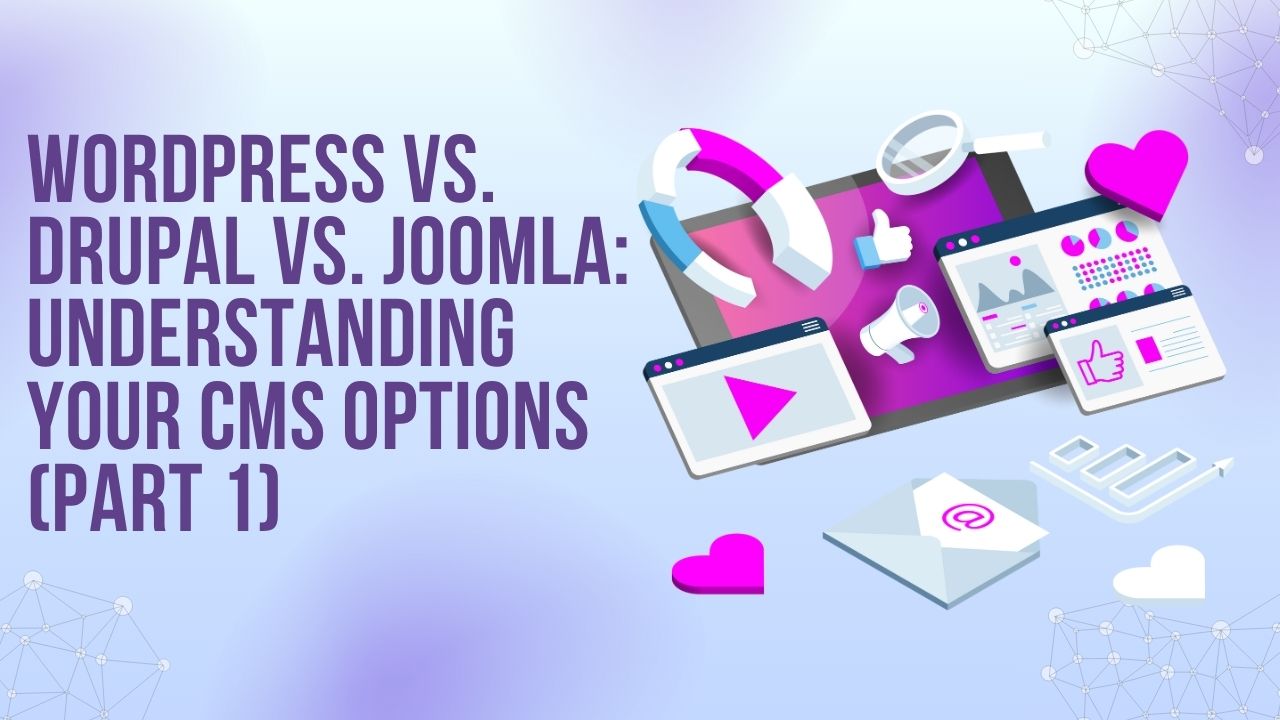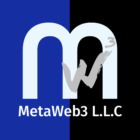WordPress vs. Drupal vs. Joomla: Understanding Your CMS Options (Part 1)

Table of Contents
Introduction
Voice search, an innovative technology that allows users to search the internet using spoken commands, has gained popularity with the rise of voice-activated devices. As these devices become more integrated into daily life, the convenience and speed of voice search have made it a preferred option for many users. This trend is reshaping how people interact with technology, underscoring the need for businesses to adapt their digital marketing strategies to accommodate voice search optimization.
Understanding the Critical Role of a CMS
Before we jump into platform comparisons, let’s establish what a Content Management System actually is and why this decision matters so much for your business.
A CMS is essentially the backbone of your digital operations – a software application that enables you to create, manage, edit, and publish content on your website without needing extensive technical knowledge. Think of it as the control center where you can add new pages, upload images, modify existing content, and manage user interactions, all through an intuitive interface.
Why Your CMS Choice is Business-Critical
The CMS you select today will impact virtually every aspect of your online operations:
Your CMS directly affects how fast your site loads, how well it handles traffic spikes, and how smoothly users can navigate your content. A slow, clunky website can cost you customers and search engine rankings.
As your business grows, your website needs to grow with it. The right CMS should accommodate increased content, users, and functionality without requiring a complete overhaul.
Modern businesses rely heavily on content marketing, SEO, and digital campaigns. Your CMS should empower these efforts, not hinder them with technical limitations.
With cyber threats constantly evolving, your CMS needs to provide robust security features and regular updates to protect your business and customer data.
While many CMS platforms are free to download, the real costs come from development, maintenance, hosting, plugins, and ongoing support.
Essential CMS Features Every Business Needs
When evaluating any CMS, look for these fundamental capabilities:
Intuitive Content Editor:
- A user-friendly interface that allows non-technical team members to create and update content easily
Flexible Design System:
- The ability to customize your site’s appearance and functionality to match your brand and business requirements
SEO Optimization Tools:
- Built-in or easily added features that help your content rank well in search engines
User Management:
- Granular control over who can access and modify different parts of your website
Regular Security Updates:
- Ongoing protection against emerging threats
WordPress: The Global Leader
WordPress has become synonymous with website creation for good reason. Originally launched in 2003 as a blogging platform, it has evolved into the world’s most popular CMS, powering over 40% of all websites on the internet. From personal blogs to Fortune 500 company websites, WordPress has proven its versatility time and again.
Drupal: The Developer's CMS
Drupal takes a fundamentally different approach to content management. Rather than prioritizing ease of use for beginners, Drupal focuses on providing developers and technical users with maximum flexibility and control. This philosophy has made it the go-to choice for complex, large-scale websites that require custom functionality and enterprise-grade security.
Drupal's Strengths: Built for Complex Requirements
Unparalleled Flexibility and Customization Drupal’s architecture is designed around the concept that every website has unique requirements. Instead of forcing you to work within predetermined structures, Drupal provides a framework that can be molded to fit virtually any need. Custom content types, fields, and relationships can be created without writing code, giving site builders incredible power to create bespoke solutions.
Enterprise-Grade Scalability When websites need to handle millions of pages, thousands of concurrent users, or complex data relationships, Drupal excels. Its robust caching system, database optimization capabilities, and proven ability to scale make it suitable for the largest organizations. Major websites like NASA, The Economist, and numerous government portals rely on Drupal for their critical operations.
Advanced User Management Drupal’s user permission system is incredibly granular, allowing administrators to create complex user roles with precisely defined access rights. This is particularly valuable for organizations with multiple departments, contributor levels, or security requirements that need fine-tuned access control.
Security Leadership Drupal has earned a reputation as one of the most secure CMS platforms available. Its dedicated security team, rigorous code review processes, and proactive vulnerability management have made it the preferred choice for government agencies, financial institutions, and other security-conscious organizations. The platform follows strict security coding standards and provides detailed security advisories.
Multilingual Excellence While many CMS platforms treat multilingual functionality as an afterthought, Drupal has multilingual capabilities built into its core. Creating and managing websites in multiple languages, with proper content translation workflows and language-specific URL structures, is straightforward and powerful.
Drupal Excels For:
- Complex websites with advanced functionality and security requirements
- High security standards and accessibility compliance needs
- Complex user hierarchies and content management workflows
- Sophisticated content publishing and workflow requirements
Advanced multilingual and multi-site management needs
- Healthcare, finance, and other sectors with strict compliance requirements
Joomla: The Middle Ground Solution
Joomla positions itself as the bridge between WordPress’s simplicity and Drupal’s complexity. Launched in 2005, it has maintained a dedicated following by offering more advanced features than WordPress while remaining more accessible than Drupal. For organizations that have outgrown basic CMS capabilities but aren’t ready for enterprise-level complexity, Joomla often provides the perfect middle ground.
Joomla's Unique Strengths
Balanced Complexity Joomla offers a sweet spot between ease of use and advanced functionality. Users can accomplish more sophisticated tasks than WordPress typically allows without needing the technical expertise that Drupal demands. This makes it attractive for organizations with some technical capability but not full development teams.
Built-in Multilingual Support Unlike WordPress, which requires plugins for multilingual functionality, Joomla includes comprehensive multilingual features in its core. Creating and managing content in multiple languages, with proper SEO and user experience considerations, is straightforward and doesn’t require additional extensions.
Robust User and Content Management Joomla provides more granular user access controls than WordPress out of the box, with a flexible ACL (Access Control List) system that allows detailed permission settings. Content management features like advanced categorization and tagging systems provide better organization for complex content hierarchies.
Strong Extension Framework While smaller than WordPress’s plugin ecosystem, Joomla’s extension directory offers high-quality solutions for most common needs. The extension system is well-architected, reducing the likelihood of conflicts and compatibility issues that can plague other platforms.
Joomla Works Best For:
- Strong user management and social features
- Need more than WordPress offers but don’t require Drupal’s complexity
- Good balance of functionality and cost-effectiveness
- Excellent user access control and member management features
- Built-in language support without additional plugins
- Good content organization and user management for smaller schools
What's Coming in Part 2
Now that you understand the unique characteristics, strengths, and limitations of each platform, you’re ready for the next step. In Part 2 of this series, we’ll provide:
- Side-by-side comparison across critical factors like ease of use, security, performance, and cost
- Real cost analysis including hidden expenses and long-term investment considerations
- Decision framework with specific criteria to help you choose the right platform
- Implementation guidance for getting started with your chosen CMS
- Future trends and how each platform is evolving to meet changing needs
Understanding each platform individually is important, but making the right decision requires comparing them systematically against your specific needs. Part 2 will give you the tools and framework to make that decision confidently.
Ready to Continue Your Journey?
The choice between WordPress, Drupal, and Joomla isn’t about finding the objectively “best” platform—it’s about finding the best fit for your organization’s unique needs, resources, and goals. Each platform has earned its place in the market by excelling in different scenarios.
If you’re eager to make your decision and want expert guidance tailored to your specific situation, don’t wait for Part 2. Contact MetaWeb3 today for a personalized consultation. Our team has extensive experience implementing all three platforms and can help you navigate the decision-making process, ensuring you choose the CMS that will serve your business best both now and in the future.
Stay tuned for Part 2, where we’ll bring all this information together into a practical decision-making framework that will give you the clarity and confidence to move forward with your CMS selection.

